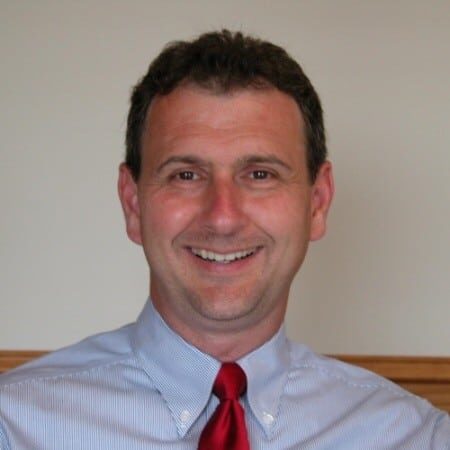
My guest for Episode #368 is somebody I've met fairly recently through his excellent posts on LinkedIn, Steve Feltovich.
He is the president of SJF Consulting, Inc. and he previously had a long career in the automotive industry, in particular collision and repair.
Steve learned about Dr. Deming's approach and also learned the Toyota Production System from Toyota and Toyota University, so he has an interesting perspective that I really appreciate.
I hope you enjoy the discussion!
Streaming Player:


For a link to this episode, refer people to www.leanblog.org/368.
For earlier episodes of my podcast, visit the main Podcast page, which includes information on how to subscribe via RSS, through Android apps, or via Apple Podcasts. You can also subscribe and listen via Stitcher or Spotify.
Questions, Topics, Quotes, and Links:
- Steve's LinkedIn page
- Mary Walton's book on Dr. Deming
- What was your first exposure to TPS and Deming?
- Which order was it?
- What are some of the Deming concepts that resonate most with you?
- A system – where to start?
- Learning from Toyota — Toyota University
- Tell us about applying Deming, TPS, Lean in your career…
- In collision and repair
- Parallels to healthcare?
- What sort of consulting do you do now?
- Your LinkedIn headline: “Driving change for measurable improvement”
- What does that mean to you?
- Why is TPS “diluted” sometimes?
- What does it mean to drive out fear?
- Should sales commissions be eliminated? Why are they “the root of all evil”?
- Where to start?
Thanks for listening!
Episode #368 Summary: Steve Feltovich on Deming, Toyota, and the Long Road to Real Lean
In Episode #368 of the Lean Blog Interviews Podcast, Mark Graban welcomes Steve Feltovich, president of SJF Consulting Inc., whose career has spanned sales, training, and executive leadership in the automotive collision and repair industry. Steve's Lean journey began not with Toyota, but with Dr. W. Edwards Deming–first encountering the 14 Points as a mysterious framed poster on the wall of a corporate office in the late 1980s. That moment stuck with him for years until a colleague handed him The Deming Management Method by Mary Walton, a book that would ignite a lifelong commitment to systems thinking and continuous improvement.
“My DNA and internal chemistry linked with Deming's principles. It was like–this is so simple. Why doesn't everyone get it?”
Steve's exposure to Deming provided the philosophical backbone for his later training in the Toyota Production System. He worked closely with Toyota and Lexus consultants and served as a Toyota University instructor for over 17 years. In his view, Lean has often been diluted in practice, especially when organizations cherry-pick tools without understanding the systemic foundations.
“We've diluted the Toyota Production System significantly in the Lean movement we have today.”
Throughout the episode, Steve and Mark explore how Deming's philosophy should be the foundation of Lean–not an optional add-on. Steve draws a strong connection between Deming and Taiichi Ohno, arguing that Deming redefined executive thinking in post-war Japan just as Ohno transformed manufacturing practice. They also discuss the dangers of superficial adoption–whether it's posting the 14 Points on the wall without cultural change, or implementing andon cords without empowering workers to stop the line.
“The Toyota Production System was designed to be fragile–on purpose–so that problems would surface and we'd be forced to learn.”
Steve criticizes performance systems driven by extrinsic motivators, like sales commissions, which often encourage short-term, self-serving behaviors over sustainable value. Instead, he advocates for intrinsic motivation and long-term thinking, emphasizing that real improvement happens only when leaders commit to purpose beyond profit.
“A business exists to create a customer–not just to make money. That's Deming. That's Drucker. And it's still being ignored.”
The conversation also touches on Steve's consulting work with collision repair shops and private equity firms, where he applies Lean principles to assess operational waste and hidden potential. While some firms view Lean as a tool for short-term margin improvement, others are starting to understand its value as a cultural and strategic foundation.
Steve's message is clear: whether in healthcare, manufacturing, or automotive services, organizations must embrace a system view and a constancy of purpose. Leaders must be willing to question the very systems that rewarded them–and that's often the hardest part.
“The people who get promoted to the top have usually been rewarded by the existing system. So why would they change it?”
This episode offers a deep, reflective, and at times provocative conversation for anyone navigating the challenges of Lean transformation. It's especially relevant for leaders who are questioning how to make real, sustainable change in their organizations.
What do you think? Please scroll down (or click) to post a comment. Or please share the post with your thoughts on LinkedIn – and follow me or connect with me there.
Did you like this post? Make sure you don't miss a post or podcast — Subscribe to get notified about posts via email daily or weekly.
Check out my latest book, The Mistakes That Make Us: Cultivating a Culture of Learning and Innovation:









